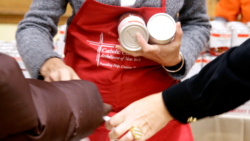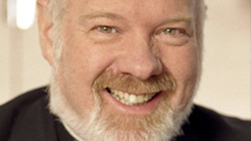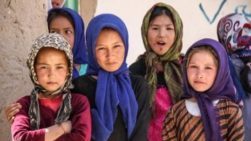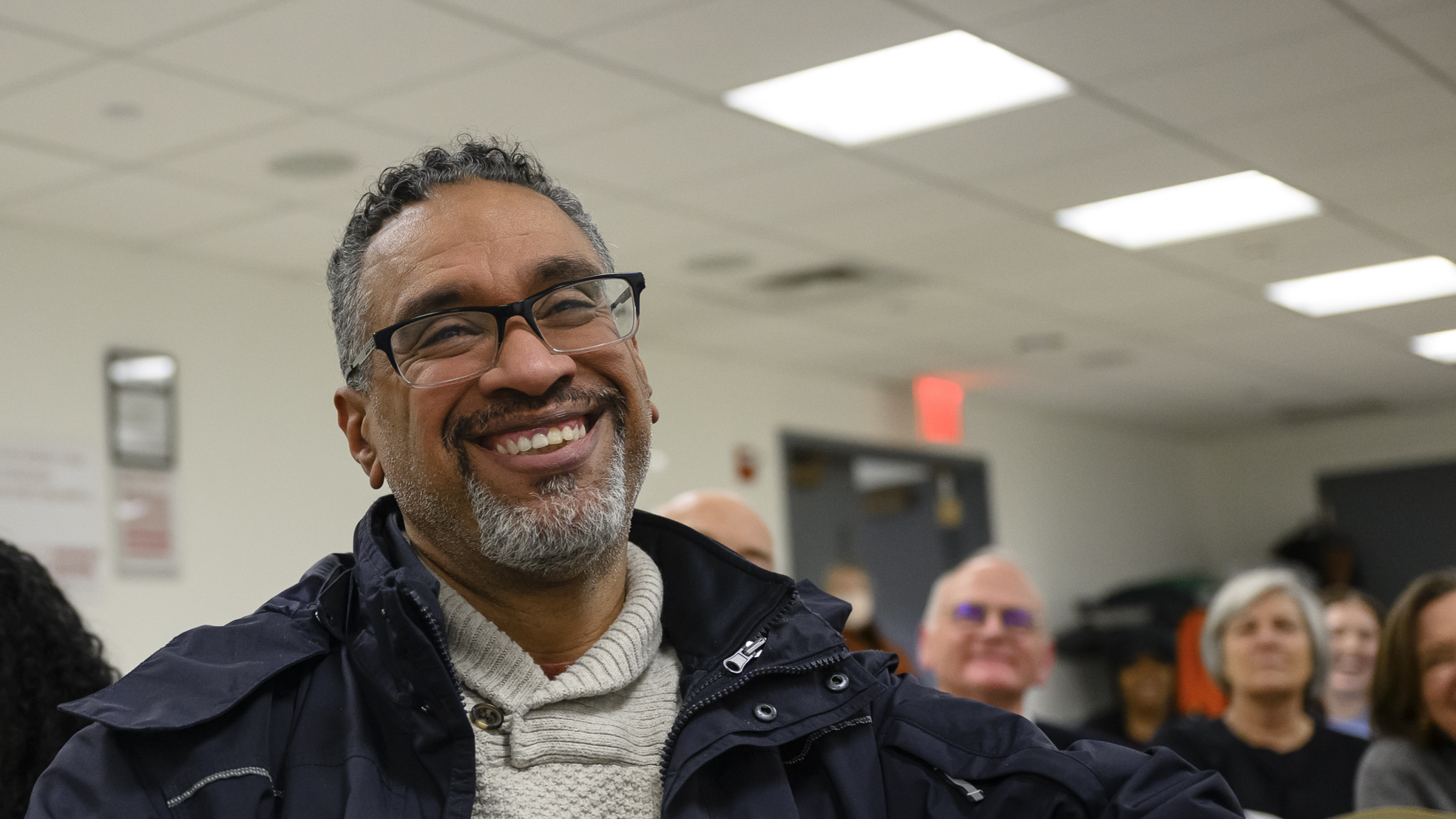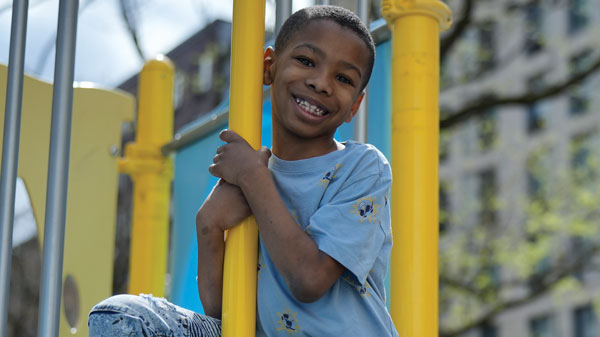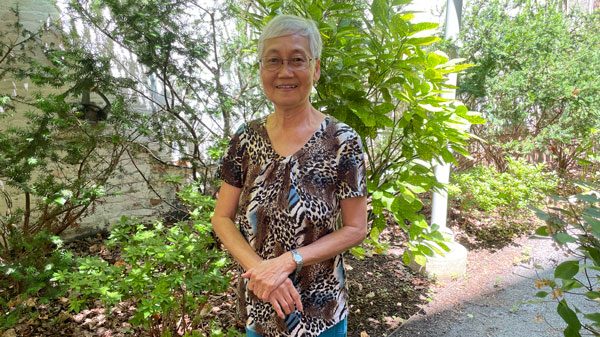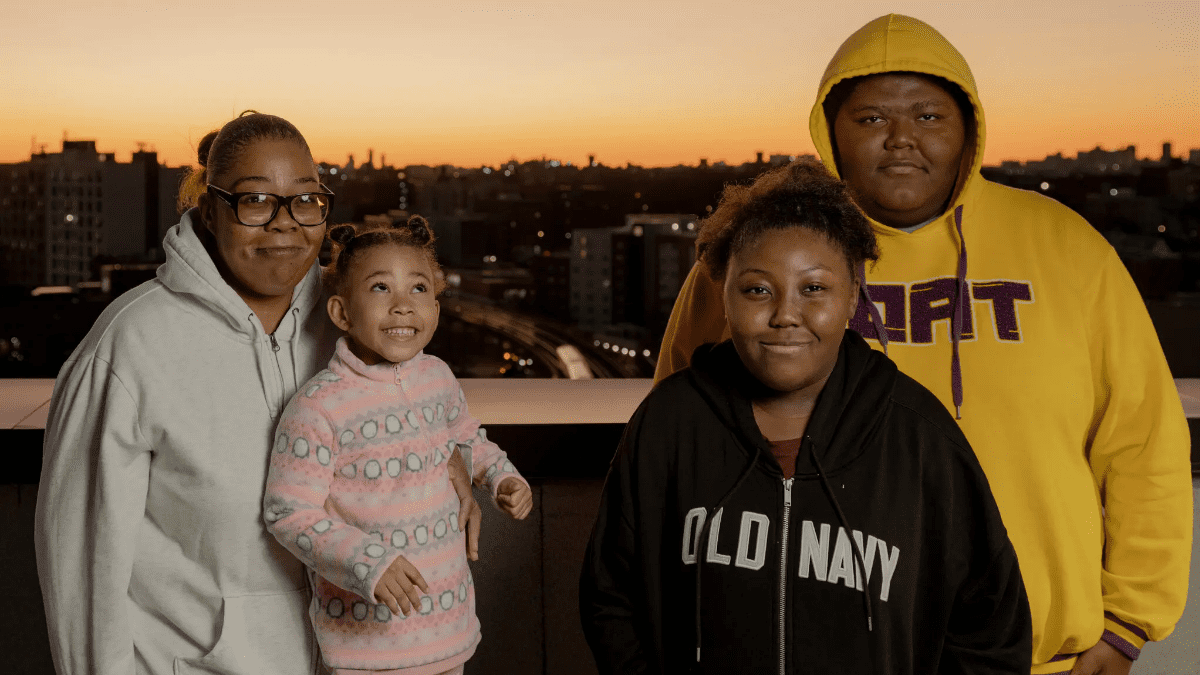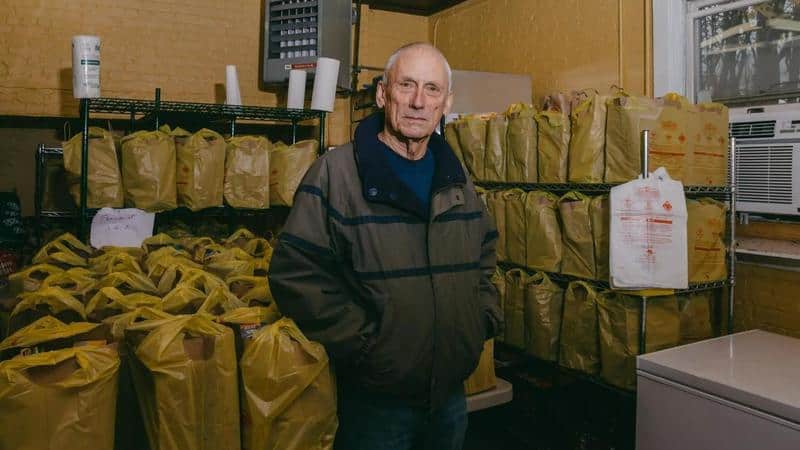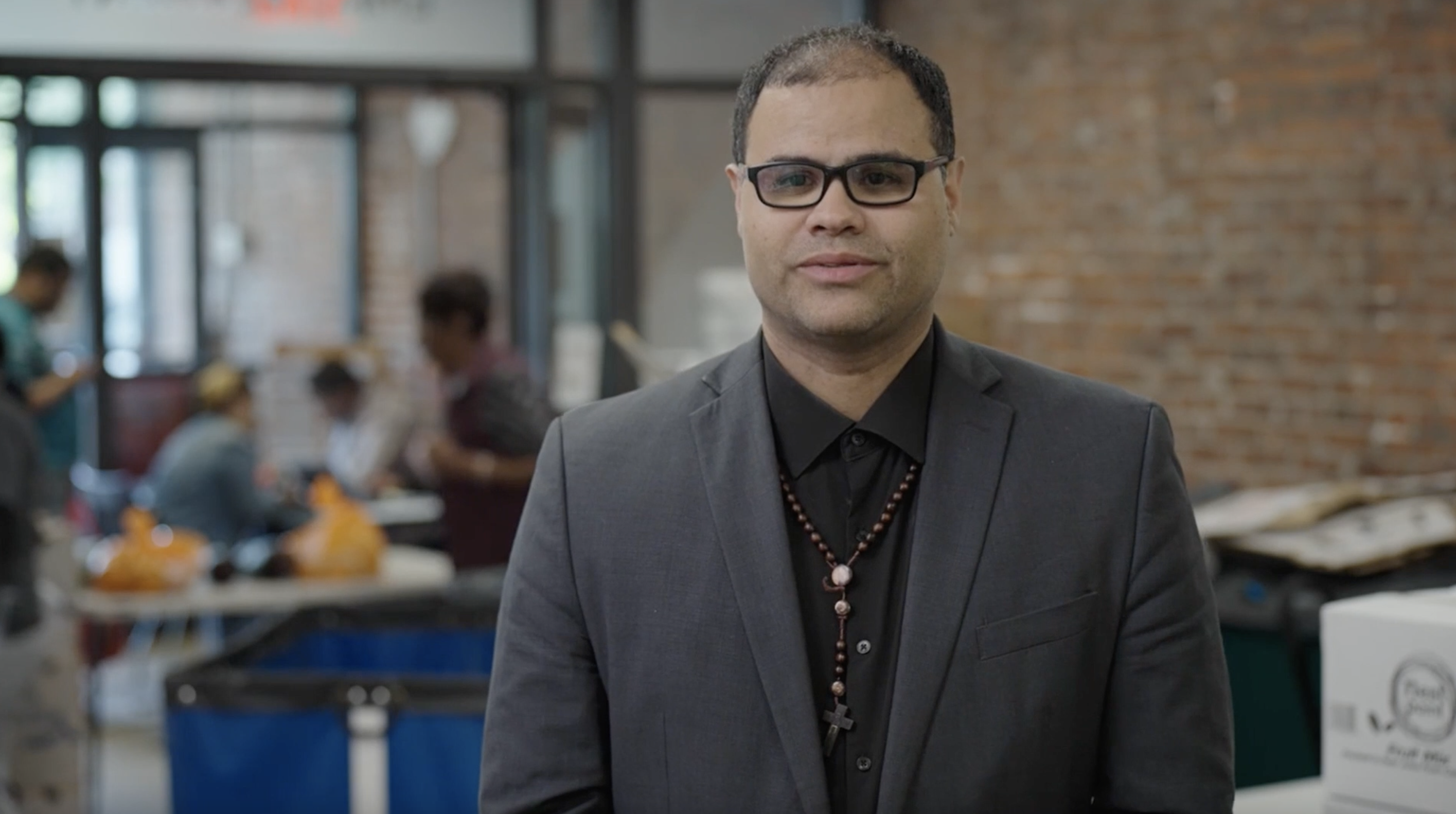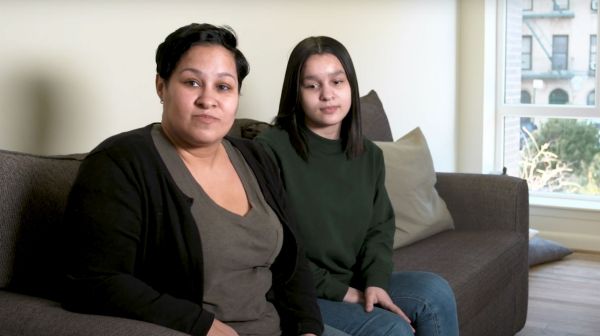Richard Espinal, Director of Housing Support Services for Catholic Charities of the Archdiocese of New York, spoke at the Catholics en Communidad conference held July 12 at Fordham University in the Bronx. He joined other experts on the role of Latinos in American Catholic life, including Cardinal-designate and Apostolic Nuncio Christophe Pierre; Odet Bisono, Co-Founder of Corazon Puro; Natalia Imperatori-Lee, Professor of Religious Studies, Manhattan College, and Mario J. Paredes, CEO of SOMOS Community Care. The conference was sponsored by The Curran Center for American Catholic Studies at Fordham. Below is an excerpted version of Richard’s address:
The Lord said that His people would “abide in a peaceful habitation, in secure dwellings, and in quiet resting places” (Is. 32:18) but in places like The Bronx, that promise has eluded so many. Far too many of our sisters and brothers are either homeless, on the brink of losing their housing or so burdened by their housing expenses that many must choose between paying for medicine, keeping the lights on, or even their families’ next meal.
How did we get here?
Speaking specifically about the Latino community, we can take great pride in the milestones that we have reached and the many ways in which we continue to make strides to improve our communities and lay the foundation for a better future for our children.
In New York, Latinos have the highest poverty rate, which is terribly ironic, since we also have the highest labor market participation of any other group. To put it simply, more of us are working but they are in significantly lower-wage jobs. Given this reality, it is also no wonder that:
• More than half of Latino children live either below the poverty line or in low-income households.
• More than half of Latino households are “rent-burdened,” meaning they are paying more than 30% of their income to pay for their housing.
• And Latinos are more likely than any other group to live in overcrowded households.
The reality is that the “American Dream” that brought many of us or our parents or grandparents, to this country, has not been handed to us on a silver platter. We have had to deal with and continue to deal with systemic inequity, racism, and indifference. We are part of the marginalized group of un-, mis-, dis-, in-, people who daily must face underemployment, mistreatment, disparity, and injustice.
But what about that promise of the Lord?
Housing is the basis of stability and security for an individual or family. It is at the heart of our social, economic, and even our emotional lives. It should be a place to live in peace, security, and dignity, in other words, the “secure dwelling” that God wants for His people.
Unfortunately, housing is treated more like a commodity, to be bought and sold, another of the “haves” that others “have not.” As the revenue from real estate has grown, our city has become increasingly unaffordable. However, housing is not just a human good but a human right, and we must work towards ensuring that all people have access to it.
Catholic Homes New York, an initiative led by Catholic Charities and the Archdiocese of New York develops affordable housing for families, seniors, and those in need of special supports. By creating new affordable homes and preserving existing units, we are continuing the decades of work that builds strong, sustainable communities through affordable housing. Since the 1970s, the Catholic Church in New York has developed almost 3,000 units, with over 2,300 of them, here in the Bronx. With a pipeline of new projects on church and affiliate owned sites, our housing development efforts continues the Archdiocese of New York’s historic deep commitment to poor and vulnerable families and individuals, demonstrated through the activities of its parishes, schools, religious orders, Catholic Charities, and other ministries.
More recently, Catholic Charities Community Services created the Housing Support Services department to provide a new level of service delivery for the residents living in selected affordable housing developments. In line with Catholic Charities’ mission and vision to uphold the dignity of each human person, we seek to provide help and create hope by accompanying our neighbors, providing community engagement and social services with compassion, helping them to alleviate burdens and remove barriers, so they can create a better future for themselves and their communities. By working on-site, we integrate ourselves into the fabric of the local community, accompanying residents in their daily lives and not only during times of crisis.
However, this work is not just mine alone or just the work of agencies like Catholic Charities but the whole Church. In the Catholic tradition, we teach that social action requires two feet, charity, and justice.
I started my remarks by describing many of the barriers that face our community. These barriers do not simply get erased by coat drives and food pantries. It requires all of us to first believe that the Lord wants more for us and that WE have a role in making that reality. It then requires to be like the widow of the Gospel, who was persistent in her pleas. We must never cease in demanding change. We must, as Pope Francis has repeatedly guided us to do, reach out to the margins, and bring those who society is more than willing to forget or exploit, back into the center of our collective concern. We must demand better schools, higher wages, and of course, dignified housing for all.
As Latino Catholics, so much of who we are is shaped by faith, in our belief that something better is coming, that something better is possible. All of the adversities that we face, the crosses that we carry, we do so with the understanding, that it is all preparation but the engine that drives us forward is the DREAM. It is the dream that pushes someone to leave their country of birth to build a new life in a strange place. It is the dream that pushes someone to work two or three jobs, only finding time to sleep on the subway. It is the DREAM, that we pass on to our children, so they’re the first to graduate college, the first to become doctors, the first to own their own homes. And the biggest risk we have as a community is that we let the DREAM die because we fail to realize that it is not my dream or yours but ours.
Pa’lante Mi Gente!


